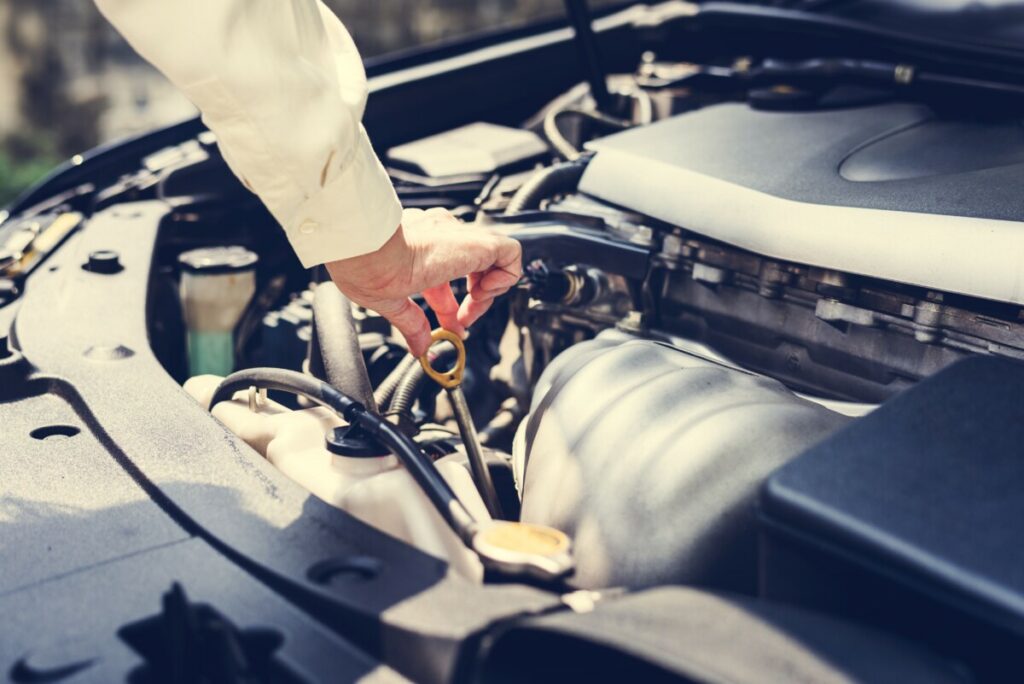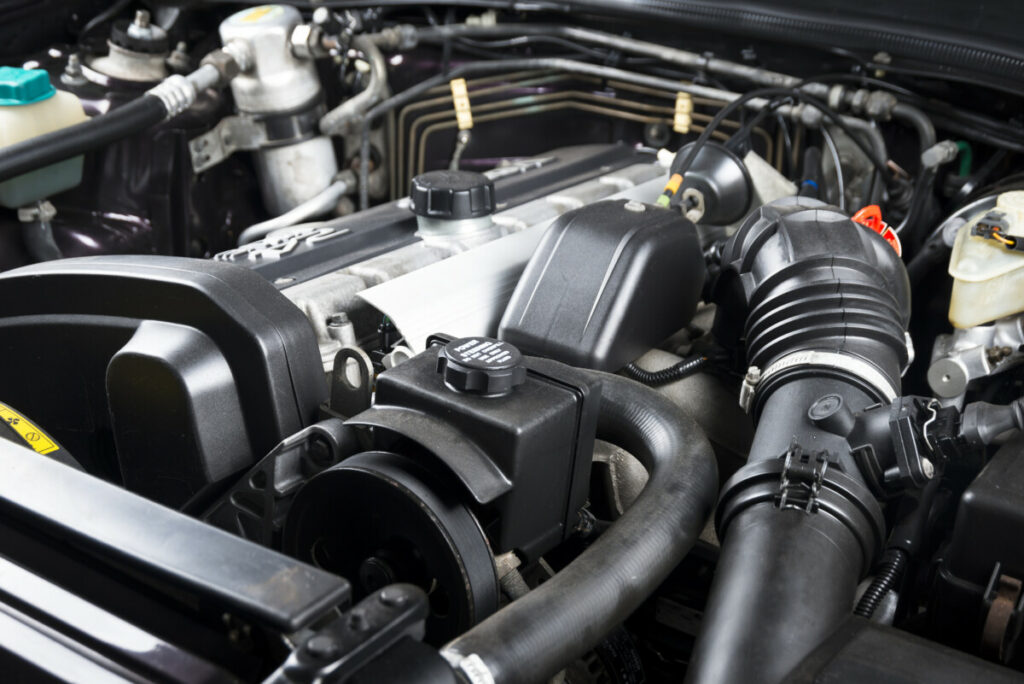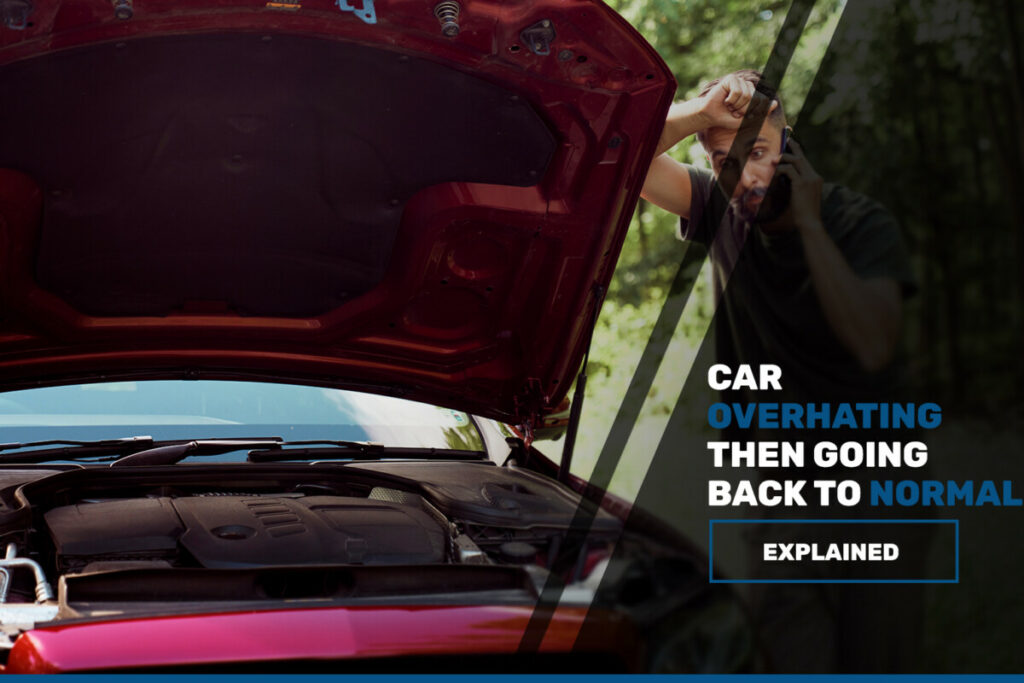Here we are at another heated discussion about car overheating and then returning to normal operating temperatures.
In this article, we’ll explore the possible causes of this common issue, and provide solutions to keep your vehicle running smoothly.
Whether you’re a car owner who’s experianced this issue or just want to prevent it from happening, this article is for you. So, put on your mechanic gloves and let’s get started!
Why Does It Happen – Common Reasons
A car can overheat when the engines cooling system which regulates the temperature of the engine is not working properly. This usually happens due to a variety of issues such as a malfunctioning thermostat, low coolant levels, or a clogged radiator. If you are looking for reasons or causes as to why this might happen, here are some:
Low Coolant Levels: If the coolant levels in your vehicle are low, it will not be able to dissipate heat properly, causig the engine to overheat.
Faulty Thermostat: A faulty thermostat can cause the engine to run too hot or too col, resulting in overheating.
Clogged Radiator: A clogged radiator can impede the flow of coolant, causig the engine to overheat.
Air In The Coolant System: Air in the coolant system can cause the coolant to become less effective, leading to overheating.
Leaking Or Damaged Hoses: Leaking or damaged hoses can cause coolant to leak out of the system, resulting in overheating.
Water Pump Failure: A failed water pump can cause the coolant to not circulate properly, resulting in overheating.
Overheating can happen due to some miscelaneous issues like a failed head gasket, a failed cylinder head or a malfunctioning engine oil cooler, etc. These issues can cause the engine to overheat, and then return to normal temperatures as the engine cools down.
It’s important to keep in mind that these are just common reasons and an accurate diagnosis should be done by an experianced mechanic.
What You Can Do – Common Fixes

Now that you know the reasons why overheating in cars may happen, it is important to share with you some things that you should have in mind in order to help your car that is undergoing the weird condition of overheating and then going back to normal.
The things you can do include:
Refilling coolant levells: If the coolant levels in your vehicle are low, you can simply refill the coolant to the appropriate level as specified in your vehicle’s manual. Just make sure you don’t mistake the coolant for your morning coffee!
Replacing the thermostat: If the thermostat is faulty, it can be replaced by an experienced mecanic. And trust me, no one wants a thermostat that’s as moody as a teenager!
Flushing the radiator: A clogged radiator can be resolved by flushing it out with a radiator flush solution. Just like you need a good flush every now and then so does your car!
Bleeding the coolant system: If there is air in the coolant system, it can be bled out by an experienced mecanic. Think of it like getting a blood transfusion for your car!
Replacing leaking or damaged hoses: Leaking or damaged hoses can be replaced by an experienced mechanic. Just like you can’t run a marathon with a leaky hose, your car can’t run with leaky hoses either!
Replacing the water pump: A failed water pump can be replaced by an experianced mechanic. Just like the heart pumps blood, the water pump pumps coolant!
Fixing head gasket or cylinder head isues: If the engine is overheating due to a head gasket or cylinder head issue, it can be fixed by an experienced mechanic. Just like a headache can ruin your day, a head gasket issue can ruin your car’s day!
Replacing malfunctioning engine oil cooler: If the engine is overheating due to malfunctioning engine oil cooler, it can be replaced by an experienced mechanic. The oil cooler is like the air conditioner for your car’s engine, keep it working well!
Can Repeated Overheating And Cooling Damage A Car?

When it comes to car overheating, it can be a real hot mess (pun intended) if not adressed promptly.
High temperatures can cause warping of cylinder heads and engine blocks, leading to leaks in the colant system and making your engine look like a leaky faucet.
A malfunctioning thermostat can cause the engine to overheat and can cause damage to the engines head gasket, which can lead to engine oil and coolant mixing together, like a bad salad dresing.
If left unchecked, this can cause serious damage to the engine, resulting in costly repairs or even engine failure, just like how ignoring a serious problem in your life can cause serious consequences.
Additionally, when the engine overheats, it can cause damage to the transmision, as the high temperatures can cause the transmission fluid to break down and lose its lubricating properties, leading to transmission failure or other transmission related issues, just like how too much heat can cause your body to break down and lose its lubricating oils.
Furthermore, when a car is overheating, it can cause damage to the car’s electrical system, and it can damage the batery as well.
Overheating can cause the battery terminals to corrode and damage the battery, which can lead to a car not starting or other electrical problem, just like how too much heat can cause your phone to corode and not start up.
In summary, overheating can cause serious and costly damage to a car if not addressed in a timely manner, so it’s important to pay atention to the warning signs and have it checked by an experienced mechanic, just like how you should pay attention to your body’s warning signs and see a doctor.
Final Words
Overall, when a car overheats and then goes back to normal is definitely an issue that you consider, of course if you don’t want to be left with a completely damaged car.
It is always important to know the reasons why it may hapen and the things that you can do in order to do everything to save your car in a way!
I hope you liked what you read thus far and I hope this article will help you deal with the issue! Good luck!

